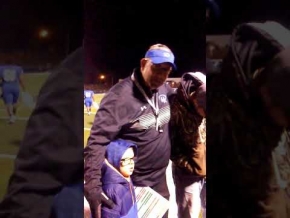Capital Highlights
By Ed Sterling
AUSTIN — As contaminated waters receded and mountains of debris from flooded homes and ruined belongings grew last week, a picture of post-hurricane Texas developed and the process of weighing impacts to lives, property and infrastructure began.
Gov. Greg Abbott delivered a series of announcements and proclamations related to catastrophic flooding and wind damage brought by Hurricane Harvey to more than 50 Gulf Coast and inland counties in late August and early September.
On Sept. 7, Abbott thanked Congress for passing a $15.3 billion hurricane relief package and called the bipartisan action “an encouraging sign.”
On Sept. 9, Abbott wrote to EPA Administrator Scott Pruitt, expressing support for a request by the Texas Water Development Board to streamline federal funding for flood and water infrastructure projects related to Hurricane Harvey. The board administers EPA’s state revolving funds, which will be used to repair and rebuild water, wastewater and storm water systems in communities affected by Harvey.
Also on Sept. 9, Abbott and Texas A&M University System Chancellor John Sharp, who heads the newly created Governor’s Commission to Rebuild Texas, met with Beaumont officials along with leaders of many state agencies. It was the first stop in a three-city, five-day trip to discuss the devastation caused by Hurricane Harvey and get input on how the commission can assist in the rebuilding and recovery effort.
Mosquito spraying begins
The Texas Department of State Health Services on Sept. 6 announced the launch of FEMA-assisted mosquito control measures over the Hurricane Harvey-stricken counties of Refugio and Bee.
Areas of standing water may increase the number of mosquitoes capable of spreading diseases such as the West Nile and Zika viruses, the DSHS said.
Paxton applauds ruling
Texas Attorney General Ken Paxton praised a decision Sept. 5 by the U.S. Court of Appeals for the 5th Circuit to uphold the state’s voter identification law that was blocked last month by a Corpus Christi federal district court.
A three-judge panel of the Fifth Circuit voted 2-1 to overturn an injunction granted by the lower court. The ruling, Paxton said, means that an interim court remedy is in place for 2017, preserving the requirement of an ID while allowing those without an accepted ID to vote by signing a sworn declaration stating that they have a reasonable impediment to obtaining one.
Furthermore, Senate Bill 5, a law passed by the Texas Legislature this year amending the voter ID law to comply with a prior 5th Circuit ruling, takes effect in 2018, Paxton said. Paxton echoed the U.S. Department of Justice, saying the new law “eradicates any discriminatory effect or intent” and expands voter identification options.
DACA decision pleases AG
Attorney General Paxton on Sept. 5 applauded President Donald Trump’s decision to phase out within the next six months the Deferred Action for Childhood Arrivals program created by President Barack Obama in 2012.
DACA granted lawful presence and work permits to nearly 800,000 people who were brought to the U.S. as children by foreign nationals. President Trump left it to Congress to pass a law by March 5, 2018, that would allow affected individuals to continue residing in the U.S.
Hegar reports on taxes
Texas Comptroller Glenn Hegar last week released the total of state revenues collected during the fiscal year that began Sept. 1, 2016, and ended Aug. 31, 2017. Hegar also posted a state revenue report for the month of August.
Sales tax revenue for the year was $28.9 billion, 0.3 percent ahead of the $28.8 billion projected in the January biennial revenue estimate, and general revenue-related revenue was $52.3 billion, or 1.2 percent ahead of the projection of $51.7 billion. State sales tax revenue for the month of August totaled $2.48 billion, 0.9 percent less than in August 2016, he said.
Also, Hegar reported that Texas’ “all funds” tax collections for fiscal year 2017 came to $49.6 billion, or 0.2 percent less than his $49.7 billion projection, and all funds revenue totaled $111.2 billion, or 1.4 percent less than his $112.8 billion projection.
Revenue distribution set
Comptroller Hegar on Sept. 7 announced his office would send cities, counties, transit systems and special purpose taxing districts $668.3 million in local sales tax allocations for September, an amount 6.2 percent more than the Office of the Comptroller distributed in September 2016.
Allocations are based on sales made in July by businesses that report tax monthly.

















